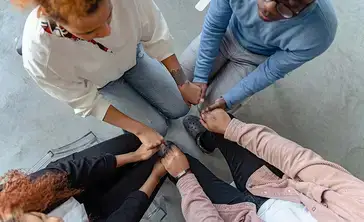SUNY Oneonta is committed to supporting campus community members’ physical and mental health and wellness. We approach wellness from a holistic standpoint, offering comprehensive medical care and health education resources at our on-campus Health Center and a variety of services through our Counseling Center.
All students have access to the main clinic, health education resources, and fun and informative activities that emphasize healthy lifestyle choices. Services include psychiatry, immunization, women’s services, LGBTQIA+ care, laboratory and pharmacy services, and more.
The Health Center delivers the same type of comprehensive care you would expect from your primary care provider and offers in-person appointments Monday through Friday. With two medical providers and two RNs on staff, we provide high-quality care for our students and help them develop skills for responsible decision-making regarding their health and well-being.
Our Counseling Center, housed inside the Health Center, plays an important role in maintaining a supportive campus atmosphere. Feeling stressed or homesick? You can make a same-day appointment to speak with a caring, dedicated member of our staff. We also offer group counseling, telepsychology and telepsychiatry, crisis appointments, and outreach and prevention services. We have recently expanded the Counseling Center staff to meet the growing needs of our students.
Our Office of Student Care and Well-Being promotes students' optimal health and academic success through robust support services, health education, and wellness programs. Our holistic approach emphasizes healthy lifestyle choices and fosters a campus environment focused on stress reduction, harm reduction, and disease prevention and is centered on the eight pillars of wellness.
We have a variety of fitness facilities, classes and activities on campus that let students blow off steam, meet friends and work on their personal fitness goals. Students are welcome to work out in one of our two fitness centers, weight room or indoor pool, or join one of our many intramural sports teams and fitness-focused student clubs. Take a hike up to College Camp, drop in on a yoga class, or participate in one of the many trips and activities offered by our Campus Recreation department.
The Red Dragon Food Pantry is a full-service food pantry open to all SUNY Oneonta students and employees, designed to help battle food insecurity by giving Red Dragons free access to nonperishable food, basic needs items and fresh produce. It is located on the bottom floor of the Hunt Union in room 6B.
SUNY Oneonta is committed to providing a safety net for students facing unexpected obstacles that could affect their ability to pay for their education and stay in college. Our Student Emergency Fund offers application-based emergency financial assistance to help students who are facing an unforeseen event or circumstance. Since its creation, the fund has helped hundreds of eligible students in their time of need.






